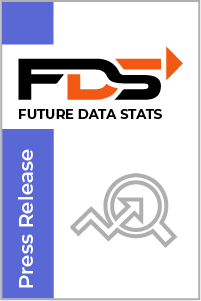
Agricultural Supply Chain Management Market to reach USD 1110 Mn by 2025 | CAGR 10.5%
The global Agricultural Supply Chain Management Market size was valued at USD 1110 million in 2025 and is projected to expand at a compound annual growth rate (CAGR) of 10.5% during the forecast period, reaching a value of USD 1971 million by 2031.
The global agricultural supply chain management market is experiencing a profound transformation, propelled by the urgent and interconnected needs for enhanced efficiency, transparency, and sustainability within the agricultural sector. The escalating global population places unprecedented pressure on food systems, making the optimization of supply chain processes from farm to fork a critical component of global food security. Agricultural supply chain management encompasses the comprehensive oversight of all activities involved in the movement of agricultural goods, including farm planning, input sourcing, inventory management, logistics, distribution, and stringent quality control. The integration of sophisticated technologies is fundamentally reshaping these processes, leading to reduced waste, improved traceability, and greater overall operational resilience.
A primary catalyst for this market's expansion is the escalating adoption of cloud-based supply chain management solutions. These platforms offer unparalleled scalability, flexibility, and real-time data access, allowing stakeholders—from smallholder farmers to large agribusiness corporations—to monitor the status and location of goods instantaneously. This capability is crucial for making informed decisions, optimizing routes, and responding proactively to potential disruptions. Complementing this trend is the rise of precision farming techniques, which leverage data to optimize inputs and maximize yields, and the proliferation of digital platforms that seamlessly connect farmers with buyers, financiers, and service providers. This digital integration is particularly impactful in the Asia-Pacific region, where a vast agricultural base is being modernized through significant government and private sector investments in agricultural technology. While North America and Europe continue to lead in market share, benefiting from mature technological infrastructure and highly developed export logistics, other regions are rapidly emerging as significant contributors. Latin America, with its immense agricultural output, and parts of the Middle East and Africa are increasingly focusing on modernizing their supply chains to reduce losses and enhance their competitiveness in the global marketplace.
Despite the strong growth trajectory, the market confronts several substantial challenges. The inherently fragmented nature of agricultural supply chains, often involving numerous small-scale producers, complicates the implementation of standardized, end-to-end management systems. Furthermore, the high initial cost of deploying advanced technologies such as Internet of Things (IoT) sensor networks and blockchain platforms can be a significant barrier to entry, especially for smaller operators and in developing regions where supporting infrastructure may be inadequate. The COVID-19 pandemic served as a stark reminder of the vulnerabilities inherent in traditional, linear supply chain models. Widespread disruptions exposed the risks of over-reliance on manual processes and a lack of visibility, thereby accelerating the industry-wide pivot toward digitization and automation. This shift is further reinforced by a powerful external force: rising consumer demand for transparency. Modern consumers are increasingly interested in the origin, safety, and environmental footprint of their food. This demand is driving substantial investments in quality control systems and sustainable supply chain solutions that can provide verifiable, real-time information about product provenance and handling.
Looking ahead, the future of the global agricultural supply chain management market is intrinsically linked to continuous technological innovation. The convergence of key technologies is set to drive the next wave of efficiency and intelligence. Blockchain technology is poised to revolutionize traceability by creating immutable, transparent records of every transaction and movement along the supply chain, effectively combating fraud and enabling swift, targeted recalls. Simultaneously, Artificial Intelligence (AI) and Machine Learning algorithms are being deployed to analyze vast datasets, enabling predictive analytics for demand forecasting, yield optimization, and predictive maintenance of equipment. The Internet of Things (IoT) continues to expand its role through networks of sensors that monitor everything from soil moisture and crop health in the field to temperature and humidity within storage facilities and shipping containers, ensuring optimal conditions and minimizing spoilage. As these technologies mature and become more accessible, they will empower stakeholders to build supply chains that are not only more efficient and profitable but also more resilient to shocks and aligned with the principles of sustainable agriculture. This focus on data-driven decision-making, from the individual farm to the global distribution network, positions the agricultural supply chain management market for a period of sustained and transformative growth, fundamentally redefining how the world produces and distributes its food.
Agricultural Supply Chain Management Market Segmentation
By Type:
- Software Solutions
- Hardware Devices
- Services
By Deployment Type:
- On-Premise
- Cloud-Based
- Hybrid
By Application:
- Farm Production Planning and Management
- Inventory and Warehouse Management
- Distribution and Logistics Management
- Supplier Relationship Management
- Data Analytics and Forecasting
- Financial Management
- Crop Monitoring and Harvest Management
- Quality Control and Traceability
By Farm Size:
- Small-scale Farms
- Medium-scale Farms
- Large-scale Farms
By Geography:
- North America (USA, Canada, Mexico)
- Europe (UK, Germany, France, Italy, Spain, Rest of Europe)
- Asia-Pacific (China, Japan, South Korea, India, Rest of Asia-Pacific)
- South America (Brazil, Rest of South America)
- Middle East and Africa (GCC Countries, South Africa, Rest of MEA)
KEY MARKET PLAYERS:
- SAP SE
- Oracle Corporation
- Manhattan Associates
- Blue Yonder
- Infor
- IBM Corporation
- Epicor Software Corporation
- Descartes Systems Group
- Deere & Company
- Bayer AG
- AGCO CORPORATION
- Granular Inc.
- Source Intelligence
- Proagrica
- AGRIVI
- Consulting Services
- Tailored Insights
- Syndicated Market Research
- Competitive Intelligence
- Emerging Technologies
- Customer Research
- Market Intelligence
- Industry Development
Our Clients











USA: +1 2345-6789
help@fds.com



